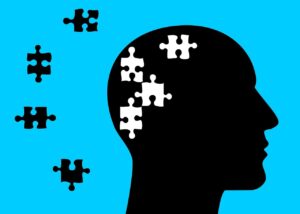
If you suffer from ADHD, you are not alone. The CDC estimates that in the US, 9.4% of children and almost 5% of adults are currently diagnosed with ADHD. Although there is no cure for ADHD, there are several ways to become successful in managing your symptoms with one of the most popular being psychotherapy. Psychotherapy, sometimes called talk therapy, is a treatment that utilizes a talking relationship between a therapist and a patient. There are several types of psychotherapy that are used for ADHD but one of the most widely researched, and used types is called Cognitive Behavioral Therapy.
Cognitive Behavioral Therapy (CBT) is a short-term, goal-focused form of psychotherapy that targets problematic thinking and behavioral patterns. A cognitive behavioral therapist and a person with ADHD would work on identifying the situation in which poor planning, disorganization, and poor time and task management create challenges in that person’s day-to-day life. Throughout therapy, the causes of each problem are discussed and various coping skills are identified and practiced to help improve functioning. The goal of CBT is to make healthy, viable coping strategies become more instinctive in everyday life. Unlike traditional therapy, goals and methods are clearly discussed between the therapist and the patient and are re-evaluated throughout the sessions.
CBT is based on the recognition that we have automatic thoughts that occur immediately in response to any given event or situation. These thoughts may be helpful and lead to positive feelings and effective coping, or they may be negative and lead to feelings of depression or anxiety and not helpful behaviors or coping. Therapy focuses on changing the automatic, unhelpful thoughts by challenging the truth of these thoughts. By changing the thought, a healthier emotional response and coping mechanism can be achieved.
For example, if someone with ADHD comes to a CBT therapist to discuss how to become more productive and better at keeping to a schedule, the therapist may have the person keep a log of what thoughts and emotions are happening throughout the day and especially during non-productive times. The patient may come back to the next session and bring this situation they encountered: “I started to write a twelve-page paper, and got stuck on the first page for most of the night because I just could not up with the perfect title and this caused me panic, frustration and anxiety, since I was not able to finish the assignment on time”. The therapist would highlight the automatic, distorted thought the patient was having which is that the patient felt a perfect title was needed and then discuss how this unrealistic expectation caused the resulting negative emotions which halted the patient’s work altogether. By challenging the automatic distorted thought, healthier and more realistic thoughts can replace it.
People with ADHD often have problems with time management, emotional regulation, organization, activation or getting started, and self-control. These problems can create frustrations and setbacks in work, school, and in social settings. Because of these setbacks many people with ADHD also suffer from low self-esteem and unhealthy self-beliefs. CBT can work to change these beliefs as well. For instance, as a person that suffers from ADHD you may find you have a pattern of exaggerating the significance of your problems and minimizing your accomplishments. This pattern can contribute to your unhealthy self-beliefs. Your CBT therapist would help you to pay more attention to your accomplishments and their meanings and to practice stopping automatic negative self-doubt thoughts.
While there is no quick fix in dealing with ADHD, CBT can greatly help improve daily functioning and there are a number of highly trained CBT therapists that can help you.
